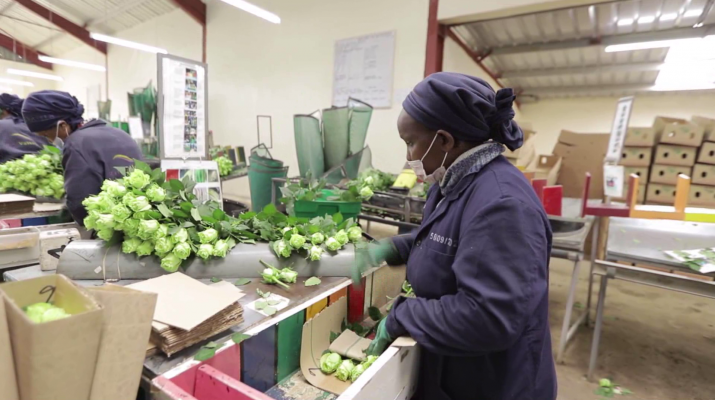The number of flower farms opting for solar power instead of electricity is on the rise with the investors crying foul over the sharp rising cost of power in the country.
The farmers have identified high electricity fees and frequent power outages as the major challenges facing the sector which is yet to fully recover after the Covid-19 pandemic.
This came as Naivasha based Rift Valley Roses and Ecoligo solar company launched the first ever floating solar project in the country.
The solar system has been installed on one of the reservoirs in the farm and has a capacity of 69 kWp and provides the flower farm with clean energy during
According to the farm owner Stuart Millar, the cost of electricity was on the rise, a move that was affecting flower production in the country.
He noted that many were the days there recorded power outages adversely affecting their production in the farm that is located in North Lake Naivasha.
“We now have a major solar system that is located on top of a reservoir and this power is clean and reliable,” he said during the launch.
Stuart noted that in twenty years, the flower farm would save over USD350,000 due to a shift in the use of solar power which was cheap compared to electricity.
“With the use of this system we shall not have any challenges in power fluctuation and we can use the generated air to aerate our green house for quality roses,” he said.
On his part, Ayub Njoroge from Ecoligo solar company noted that many farmers were opting for solar systems in a bid to reduce the rising cost of electricity.
Speaking after the launch, he noted that the current system would generate 112.5mw in one year saving the farmer a lot.
“The project sits on one of the farm’s reservoirs, saving land space and providing further benefits in addition to renewable energy,” he said.
“This floating solar system will reduce the rate of evaporation in the farm’s dam and it’s handy as it is not constructed on land or roof tops,” he said.
The Deputy Ambassador of German Thomas Wimmer was full of praise for the project noting that it would produce clean energy for the investor.
“The system will help 68 tonnes of carbon dioxide emissions from being emitted into the air and we are keen to work with the government in production of clean energy,” he said.

